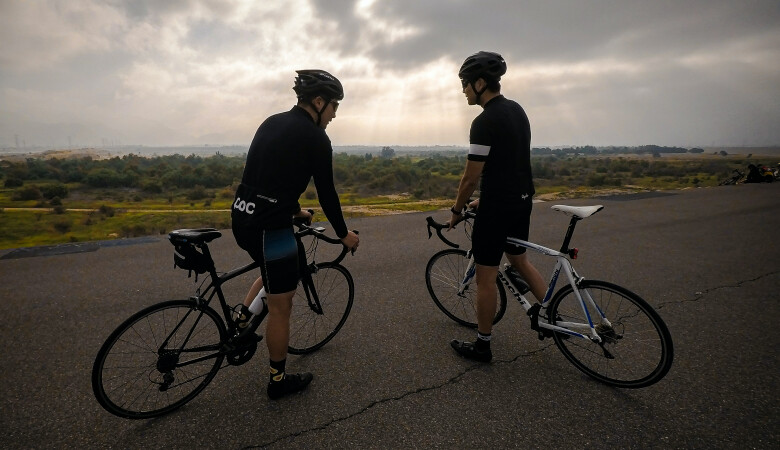Working Out Your Salvation by the Power of God, Part 2 (Philippians Sermon 10 of 24)
November 30, 2003 | Andy Davis
Philippians 2:12-13
Sanctification, Good Works
I. Introduction: Expect Great Things from God, Attempt Great Things for God
This is our second week of considering these two magnificent verses, Philippians 2:12 and 13. And as somebody who loves church history and also is called to preach, I’m always interested to know when there are sermons that change the course of history. I don’t expect ever to preach one, but I like to read about them. And there was such a sermon preached on May 31, 1792. Now, the preacher William Carey, could not have been a more surprising choice for a world changing sermon. A man born in humble circumstances and raised in rural setting, who had some kind of a rare skin disease so that he couldn’t be outside in the sunshine for very long. And so his parents contracted to have him apprentice to a shoemaker, and he learned that trade. He also was a teacher, and he would go from place to place, and he had made a leather globe. And he would show it to teach geography lessons to his students.
As a child, he had enjoyed reading adventure stories, especially those of Captain James Cook, who sailed under the British flag to the South Pacific and found all of these islands that nobody knew were discovered and really advanced the knowledge of the world about that part of the world. And he loved to read those adventure stories, but it came to him, as he came to a strong faith in Christ and knew and understood the Gospel, that the people who lived out there in the South Pacific needed Christ. And so he would point to the leather globe to his students, and he would point to the other side of the world, and he said, “These all are pagans. They’re pagans,” and he would begin to weep. He had such a burning heart for the lost. That Christ’s Gospel would spread from shore to shore and that people would come to faith in Christ to the far side of the globe.
And this conviction only grew stronger. In 1787, he was speaking at a meeting when somebody who emphasized unbiblically and overemphasized the sovereignty of God to the point where this individual said it was not necessary for us to do anything to take the Gospel to the heathen, rebuked William Carey and said, “Sit down young man. When God pleases to convert the heathen, he will do so without consulting you or me.” Well, William Carey disagreed and strongly held on to the sovereignty of God, while at the same time writing a tract entitled “Obligations and Inquiry into the Obligations of Christians to Use Means for the Conversion of Heathens”. We must do something to advance the Gospel to the ends of the earth. And so it came about on May 31, 1792, that he was meeting with a bunch of missions minded Baptists in Nottingham. And he preached what has been called a deathless sermon, a sermon that changed the course of history. Because right after that sermon, with tears, he pleaded. They said, “Oh, what a wonderful message,” and they were about to depart, and he said, “Stop. Are we going to do nothing?” And that just broke their hearts. And they started a mission society, and they chose him as their first missionary. And he was sent to India, 1792. Now, in that sermon, he said this. This is just one of the great phrases from all the sermons that I’ve ever read. “Expect great things from God. Attempt great things for God.” Think about that again. This is a man that went to the other side of the world. And he said, “Expect great things from God. And attempt great things for God.”
II. Questions of Context
Now, we have seen in the book of Philippians that the Apostle Paul lays before us, in Philippians 1, especially, two infinite journeys. The external journey of worldwide evangelization, the advance of the kingdom of Christ to the ends of the earth. And the internal journey of perfection in Christ, that we would grow in grace and in godliness and become gradually more and more like Christ, until we are totally conformed to his image. Two infinite journeys.
Now, William Carey had in mind the first of those two. Worldwide evangelization. And concerning that, he said, “Expect great things from God, and attempt great things for God.” And so he did, and did accomplish great things for God. An incredible life really. But what he spoke about the external journey, I want to apply now to the internal journey on the basis of Philippians 2:12 and 13. I believe that this text is calling you to work out your salvation with fear and trembling. “For it is God who is at work in you, both to will and to act according to his good purpose.”
And so reversing the order, we would say, God is working great things in you by his power. And you should expect him to do that. You should expect great things inside yourself by the power of God because it is his purpose that he’s working out. You should expect that God is able, by the power of the Spirit, to put to death any sin in your life. You should expect that God is able to do the great things of transforming your character so that you’re more and more like Jesus Christ. You should expect that, and that is a great thing. Expect great things from God when it comes to the internal journey of sanctification. And back to the first, attempt great things for God because he’s going to do great things in you. Work it out. Be energetic. Be bold. Be courageous, just as Carey was for the external journey, you should be also for the internal and the external, we’ll get to that in due time, not this morning. The two are internal, are totally connected, the internal and external journey, they are. But Carey said “I’m going to attempt great things for God and missions” and so he did.
III. Our Lesser Work: Working Out Salvation
We must also do the same when it comes to sanctification. Now last week we saw that salvation is a journey. We talked about how Baptists can slip into a kind of a set way of thinking by asking questions like, “When were you saved?” “And are you saved?” And once saved, always saved, as though that idea is a set thing that you get at some point like a golden certificate, and not something to be worked out, not a journey. But it actually is a journey. And we talked about how salvation comes theologically in three parts, justification and then sanctification and then glorification. At the beginning of the Christian life, justification not by works at all, not by any effort of yours, but simply by faith, you are adopted into the family of God, forgiven of all your sins. The robe of Christ, perfect righteousness put on you and forever you’re seen that way by God. Amen and amen. What a gift.
But after that comes this journey of sanctification, of growing day by day more like Jesus. Consummated in a moment in which you will see Christ face to face. And at that moment you’ll be instantaneously transformed to be just like Christ, glorification. Your works are not welcome in justification, not possible in glorification, but they are required in sanctification, so this text teaches us. And so we looked at this last week. We talked about the deep mystery of God’s sovereignty and of human responsibility in the matter of this journey of salvation. We’ve talked about how there’s been a struggle or battle in church history back and forth between the “God’s sovereignty” and “human responsibility” people. Some have gone too far toward the side of God’s activity. The Quietists who just sat and waited for God to work, and the Victorious Higher Life people who thought sanctification could be given in an instant and from then on there was no struggle. And I told you I wish it were so but it isn’t. This verse says instead we have to work at it with fear and trembling.
And we talked about so called hyper-Calvinists that just sit there and say, “God is going to work it, so you don’t have to do anything”, just like that man who criticized Carey saying that means did not have to be used for the evangelization of the heathen. Oh, yes they do. Yes, they do. And then just the lazy mainstream evangelical who says, “I walked the aisle, I was baptized. I remember distinctly I was 12 years old. I don’t need to do anything, I’ve been saved. I don’t have to work at anything in my Christian life.” Well that’s false. But those are all the people that emphasize too much the God side.
Then you’ve got those that emphasize too much on the human side. Like anxious Arminians that think at any moment you can lose your salvation. You can slip off and God will lose you and you’ll lose your salvation. And so the focus is always on what you do and what you must do to keep on being saved. And that that’s unbiblical and wrong. So there has to be a right way to understand these two verses. Work out your salvation with fear and trembling for it is God who works in you, to will and to act according to His good purpose.
Now, last time we saw our lesser work, namely we are called to work on our salvation. We’ve seen the nature of our work, that it’s consistent faith filled obedience to Christ. Again, verse 12, “Therefore my dear friends, as you have always obeyed.” It’s an issue of obedience to Christ, growing in obedience to Christ. As you’ve always obeyed, a consistent obedience, and “not only in my presence but in my absence.” It’s a faith filled obedience. It’s not an eye pleasing thing or man pleasing thing. We are pleasing God who sees everything we do. A faith filled consistent obedience and it’s done with fear and trembling. Not fear of the wrath of God, we’re delivered from that, 1 John 4, “Perfect love casts out fear.” Romans 8, we don’t have again the slavery of fear to condemnation, we’re not condemned in Christ. We’re free from that but yet, fear and trembling. Fear of what sin can do to you. Fear of the discipline of the Lord. Fear of disappointing Christ. So that we have to give an account before him of many failures in life and what a grievous thing that would be to have to do that. John Wesley said, “Give me 100 preachers who fear nothing but sin and desire nothing but God, and I care not a straw whether they be clergyman or layman, such alone will shake the gates of hell and set up the kingdom of heaven on earth.” That’s a great quote, isn’t it? But “fear sin,” said Wesley, “be concerned about what it can do to you.” Alright so that was last week. That was our lesser work.
IV. God’s Greater Work: God Working In Us
Now let’s talk about God’s greater work. God working in us, verse 13, “For it is God who works in you to will and to act according to his good purpose.” We see here the primacy of God’s work in us, remember always that God’s work comes first. If you are a Christian today, you are so because you were born again by the power of God. Something happened to you, something supernatural, something you did not manufacture. You were born again. You were regenerated. You were made a new creation by God’s power. God looked into the darkness of your soul and said, “Let there be light” and there was light and you were saved. You were dead in your transgressions and sins, like Lazarus, and Jesus the Son of God spoke and said, “Lazarus, come forth” and you did. You came forth by the power of God. And so we see the primacy, the priority of God’s work in us. It is God’s greater work and so therefore from that moment on you understand apart from him, you can do nothing. John 15:5, “I am the vine and you are the branches. Apart from me you can do nothing,” he said. And so we do all of this growing in union with Christ. And apart from him nothing will happen. Now, what God began in you by his Spirit, he means to complete. Isn’t that wonderful? “He who began a good work in you will most certainly carry it on to completion until the day of Christ Jesus.” Philippians 1:6. He’s going to start but what I’m saying to you is the way in which God began it in you is the same way in which he’ll carry it on to completion. The Galatians struggled with this. They started out by grace and then turned back to human effort by means of the law apart from the Spirit. And Paul had to write the letter of Galatians to correct this grave error. And he said in Galatians 3:3, very critical statement. He says, “Are you so foolish having begun by the Spirit, are you now being perfected by the flesh?” It can’t be. And so the very same way that God began in you is the way he’s going to keep on working, namely by his powerful Spirit inside you. And so we see the primacy of God’s work in us.
Spiritual energy for the journey
We also see God’s awesome energy in us. It is God who works in you. Energeia is the Greek verb. You get the word energy. God is pouring forth spiritual energy into your soul at every moment. There is a work going on in you. Now the great problem in this journey, for me anyway, is that it’s not a sprint. It’s a marathon. Day after long day of standing firm against temptation and battling my own nature. And battling the world and the devil. It’s wearisome, isn’t it? And it can get you down. It can get you discouraged. It’s just another day. Another day. And it can wear you out. There can be a weariness in the journey, a sorrow in the struggle. You find that a year later you’re about where you were spiritually or even worse off. And it’s painful and it wears us down. And we are tempted to give up and to cease the pilgrimage once and for all.
God will never let that happen. And why? Because he is giving you spiritual energy for the journey. Isaiah 40, “Even youths grow tired and weary. And young men stumble and fall But those who hope in the Lord will renew their strength. They will soar on wings as eagles. They will run and not grow weary. They will walk and not be faint.” And so this word, enérgeia, gives you a sense of spiritual energy coming into your soul. Get up, my son, my daughter. Get up. It’s a new day. God’s mercies are new every day, get up. Let’s go at it again. And so you’re refreshed, you’re renewed. Psalm 23, “The Lord is my shepherd I shall not be in want. He makes me lie down in green pastures. He leads me beside the quiet waters. And He restores my soul.” I’m ready again. Thanks be to God, ready to fight another day.
Where did that energy come from? I was so low yesterday but I know where it came from. God is at work in you. He’s given you energy for another day. And he leads me, or “guides me in paths of righteousness for his namesake.” So let’s get up and let’s go at it again says the Lord by his strength and his power. God wisely energizes us every day for the journey. And he works perfectly with our wills, to rouse us to action for his glory. He works perfectly within us. Now I think the great need in this journey is to understand just how powerful God is in you. That you would have a great confidence in God, a great confidence in his power. So much of the New Testament is written to give us that confidence, like Philippians 1:6, “He who began a good work in you will carry it on to completion.” He wants you confident. He does. He wants you confident so that you’ll do your part. So that you will work out your salvation with fear and trembling. You won’t be a defeatist and pessimistic. You’ll be at it. You’ll be energetic. And so much of writing in the New Testament is to make you confident in God’s power. Like, for example, Ephesians 1:18-20, “I pray also that the eyes of your heart may be enlightened in order that you may know the hope to which he has called you.” That’s heaven, perfection. The hope to which he has called you. “The riches of his glorious inheritance in the saints.” That God himself is your inheritances.
And thirdly, “His incomparably great power which is at work in you who believe.” He wants you to know just how much power is energetically working inside you. “That power is like the working of his mighty strength which he exerted in Christ when he raised him from the dead and seated him at his right hand in the heavenly realms, far above all rule and authority, power and dominion.” The same power that took Jesus from low in the grave, all the way up to the right hand of God, is at work in you, Christian. Isn’t that wonderful? And so, we have to be confident in that. He wants you confident in that power. Not in your own power. No, in God’s power, confident in what he can do. He wants you to know the energy that’s at work. Now that energy has a purpose. God isn’t just into explosive destructive energy, him blowing things apart. His energy always accomplishes something purposeful.
And in us, according to these verses, it accomplishes two things. “It is God who is at work in us to will and to act according to his good purpose.” Those are the two things God’s energy is doing in you. God is making you willing and he is making you active. Now, concerning the first of these, this is very interesting to me. God works in me to will? Yes, he does, that’s what the text says. Look at it again, go ahead, use your own eyes and look down at the page, there it is. “It is God who works in you to will.” Do you see that? I just want you to know I’m not making this up, it’s right there on the page. It’s in your very own Bible. Maybe your grandmother gave it to you, maybe you got it when you were baptized, maybe you bought it at the Zondervan sale or maybe you got it at the local Christian bookstore, maybe it’s the pew bible. But there it is, it says, “It is God who is at work in you to will.”
The heresy of Open Theism
Now free will theology folks are going to say, “This is the one thing God will never do. He will never do this, he will not get involved in your will, that yours, it’s up to you to be willing. God leaves it alone.” Now, mind you, the good ones will say, “God could do it if he wanted, but he chooses not to.” Listen to these quotes. “Another self imposed limitation to the power of God is the human free will. God never interferes with the free will of men. He always respects the human will. So, there is no pre-determination of human actions as Augustine and many other theologians after him said. Human beings are always free.” Or this one “While God may call sinners to repentance, he never interferes with man’s free will, with his ability to choose between good and evil. God always respects man’s decisions even if the result is disobedience and sin.”
The extreme form of this teaching is called Open Theism, which I’ve talked about before. Greg Boyd wrote in “The God of the Possible,” that God cannot know the future, because he cannot know free will decisions of human beings. Does that sound like a heresy to you? Because it sure does sound like one to me. God is all over the future in the Bible, I don’t know if you’ve noticed, but he’s really into the future, not just the future of inanimate objects, future of people, especially that. So God somehow does know the future. People too often say that human free will, so called, and I say so called because that phrase isn’t in the Bible. Look it up. But human free will is treated as a Holy of Holies into which God will never enter. Well, what are you going to do with this verse?
It is God who works in you to will
You know what I’m going to do with this verse? I’m going to rejoice in it. You know why? Because I was willing to go to hell for years and years and years and God loved me too much to let that continue. Instead he wants me “to will to do according to his good purpose.” And I praise God for that. It is God who works in you to will. Now, I believe the human will is an immensely complicated thing, it’s not simple. I do make real choices in my life. I really do. But at the same time, I believe that the God who designed the will understands it better than any of us ever will. And he knows what makes you willing in every case.
And not only that, but the promise of the New Covenant is that he’s going to take out your heart of stone and give you a heart of flesh. And what is that, but a willing spirit toward God, right? Ezekiel 36, “I will give you a new heart and put a new spirit in you. I will remove from you, your heart of stone and I will give you a heart of flesh. I will put my Spirit within you,” listen, “and cause you to walk in my statutes.” That sounds like Philippians 2:13, “Cause you to walk in my statutes and you’ll be careful to observe my ordinances.” In many prayers in Psalms, the Psalmist asks God to do that very thing. Listen to this one, Psalm 119:36, “Incline my heart to your testimonies and not to dishonest gain.” What is the inclination of a heart but will? “Make me willing God, please.” That’s what he’s asking, or Psalm 119:133, “Direct my footsteps according to your word. Let no sin rule over me.”
Now, imagine how complex this is, because the guy’s already willing to be made willing, because he’s praying the prayer. I told you it’s complicated, but he is saying, “God, get involved in me, get into my heart, get into my mind and change my will, make me willing.” Or this one, 2 Thessalonian 3:5, “May the Lord direct your hearts into God’s love and Christ’s perseverance.” Isn’t that wonderful?
God’s first step: His good purpose
Now, what is God’s eternal first step in all this? Well, he made a plan, before the foundation of the world. It is God, who’s at work in you to will and to act according to what? His good purpose. Does he have one of those for you? Oh yes, he does. He had it before the foundation of the world, he had a good purpose.
Listen to Romans 8:28-29, “And we know that in all things, God works for the good,” I love that word, “for the good of those who love him, who have been called according to his purpose.” Do you hear the word “good purpose” in there? A good purpose for God.
But what is a good purpose? Romans 8:29, “For those God foreknew, he also predestined to be conformed to the likeness of his Son.” Stop there, that is God’s good purpose for you. Isn’t that wonderful? That you are someday going to be conformed to Jesus, you are going to be like him. Now, God has an eternal plan, a big picture plan, he sees the whole big thing, he sees the whole world and all history.
And his plan is that all of his chosen ones shall end up absolutely perfect, morally, like Jesus. Absolutely perfect, spiritually, like Jesus. Absolutely perfect in their thinking patterns, like Jesus. Absolutely perfect, physically, like Jesus. Absolutely perfect, emotionally, like Jesus. That’s his good purpose for you. Perfection like Christ, that’s a big picture.
Small things matter
Now, not only is God a big picture God, he’s a small picture God too. The God who made the universe, decided to make it out of atoms. And the God who made history, decided to make it out of moments, out of minutes. And so, therefore the God who sees the big picture knows what this moment right now is doing to you. He knows how to work in you, to will and to act. Now, I don’t understand ultimately God’s relationship with my will and I don’t think I ever will. I think I am more complex than I am able to understand and so are you. But I keep some things in mind when I think about the relationship between God’s will and my will. Remember that Isaiah 55:9 says, “As the heavens are higher than the earth, so are your ways higher than our ways and your thoughts higher than our thoughts.” He’s doing something at a higher level than you even imagine and nowhere is that more true than in human salvation.
I keep four things in mind:
Number one, God knows you better than you know yourself. He knows what all of your motives are. He knows why you make every decision you ever made. He knows what tempts you strongly and what tempts you weakly, He knows what repels you and what attracts you. And He’s very up to date in his knowledge of you, I mean up to the moment. Alright? Because every one of your decisions and all of your experiences have had some impact on you, And so he’s not operating on yesterday’s news. He knows right where you’re at at every moment. He thoroughly completely knows you and knows what will motivate you to do this or that. He knows you completely.
Secondly, he knows the devil and the devil’s wicked evil world system better than the devil does. And he himself never tempts anyone to do evil but we know he controls and uses evil for his own glory, like the cross for example. Now that was evil and yet God used it for his glory. And so, he is able to control the things that come to you, and to really just kind of play the devil and all of his temptations like a concert pianist plays his instrument. And so, he’s able to just work that situation.
Number three, God is not passive in this whole process, not just sitting back and knowing. He is actively doing things, creating circumstances that come to you at certain key moments in your life. Closing doors and opening other ones. Corridors are opening and you just see that, that’s the way, walk in it and off you go. He is active.
And fourth, God takes every decision you make and He then instructs you based on what you did. Suppose you have a chance to go into sin or to do righteously. No matter what you do, God knows how to respond. If you choose to sin, he will rebuke you, he will correct you, he will discipline you and he’ll get you ready for the next one. If you choose to obey, he will encourage you, bless you, commend you and get you ready for the next one. And so, Jesus said in John 5, “My Father is always at his work to this very day and I too am working.” He is working in you to will and to act, according to his good purpose. Do you understand that? Neither do I. But that’s alright. These are the things that we’re trying to wrestle with here, the deep relationship between God’s will and ours.
But I keep these things in mind and God is working in me to make me willing to do what he wants me to do.
V. The Relationship Between Our Work and God’s Work In Us
Now what is the relationship between our work and God’s work in us? Look again at the verses. Verse 12, it says, “Continue to work out your salvation with fear and trembling.” What’s the next word? “for” F-O-R. “for it is God, who works in you to will and to act according to his good purpose.” That word is worth the price of admission. I don’t know how much you paid to get in here today, but that word is worth it. And why? Because it shows a logical connection between our energy and God’s work. We work, because he first worked in us. We’re energetic, because he’s energetic in us. At last, finally in our lives, we are not working at cross purposes with God, but at last, we’re lined up with the rushing wind of the Spirit and the sail is up and we are moving. Because we’re doing the very thing God wanted to do in us. God’s eternal plan and his purpose for us, becomes the ground of our planning and purpose for ourselves. His energy becomes the ground of our energy in our lives.
We work because, he first worked in us. You know what that means? You’re going to win. Do you realize that? You are going to win, you’re going to make progress. You’re going to grow and become more like Christ. You’re going to see sin dead at your feet. You’re going to see yourself a greater witness for Christ. You’re going to be stronger in prayer, as you obey and work out with fear and trembling. That’s what the call is in verse 12, continue to obey, continue to work and if you do I guarantee, according to this verse you will see progress, you will see fruit. Because God’s working the same thing in you and he’s not a loser. He’s a winner. And so, have great confidence in your captain. Have great confidence in your commanding general.
Robert E. Lee
I love to study about the Civil War and the magnificent army of Northern Virginia. They’re just, they’re just amazing, the things that they accomplished under the leadership of Robert E Lee. And they went through immense privations, physical struggles, suffering with a glad heart, because they were confident that their general could get them the one thing that matters to a soldier in the field and that is victory. It doesn’t matter if your stomach’s full and your feet are well shod and you have the prettiest looking uniform if you lost the battle. But, if all those other things are stripped away, if you can win the battle, then your confidence is great. And you’re willing to go through anything, because you’re confident, in the end, you’re going to be victorious.
Well, if the Army of Northern Virginia was confident in Robert E Lee, who lost significant battles, how much greater should our confidence be in Jesus Christ, our commander, who has never lost one? He’s never lost one of his children to the enemy and he never will. He knows how to save somebody like you and me. He knows how to do it. And so, therefore we should have a soaring confidence that we’re on the right side, doing the right things and in the end, it will produce good fruit in us. Now, I’m not standing here preaching perfectionism. Romans 7, is still true. There’s sin battling within us and we’re going to lose some. But we will not be lost and we can make real, measurable progress in sanctification by the power of God. And it’s well worth doing, to His glory.
God’s good purpose in us results in hard work for you and me
One final comment. What this means to me is that God’s eternal purpose, his good purpose in us, his eternal predestination, results in hard work for you and me. Do you see it? Work it out, because God is working in us to bring about his predestined purpose. Can you figure that out? Can you understand how God’s eternal predestination results in hard work for people like you and me? I can’t figure it out either, but it is true. These verses show it. God has an eternal purpose, he’s working it out and therefore, get busy and start working. Just like William Carey did for the heathen on the other side of the world, do it in your life. Do it in putting sin to death.
Charles Spurgeon
Charles Spurgeon was talking about the doctrine of God’s sovereignty, predestination and the effect in our lives and he said, “It can be daunting to consider that God, before the foundation of the world, predestined that I would be conformed to His image.” That’s daunting. It’s scary, actually. But he talked about this experience in which he was sailing around the west coast of Scotland. One night, they anchored off the New Hebrides Islands and as they approached this island, all they could see were great towering kind of cliffs. And the captain kept sailing closer and closer to the cliffs and he thought that they would be dashed on the cliffs.
But all of a sudden as they came around a little bit, they saw an opening between two of these massive cliffs and they sailed right through. And then suddenly, these cliffs, which had been so daunting and imposing and impressive, became their protection and their cove in which they could sail free from the danger of the storm. And so it is also with this concept of God’s predestination and also of our efforts and our activity. That which was daunting and terrifying becomes our greatest refuge and security. We work out our salvation with fear and trembling and yet, it is God who works in us and guarantees, in the end, that we will be victorious.
Isaac Watts
Isaac Watts, the great hymn writer, understood the relationship between God’s sovereign grace and its power to change our hearts and our need to work out our salvation with fear and trembling. Concerning God’s sovereign grace, he wrote, “Turn, turn us, mighty God, and mold our souls afresh. Break, sovereign grace, these hearts of stone and give us hearts of flesh.” Do you hear Ezekiel 36 in that? Isn’t that beautiful?
But then he also wrote this hymn, “Am I a Soldier of the Cross”. Listen to these lyrics:
“Am I a soldier of the cross,
A follower of the Lamb,
And shall I fear to own His cause,
Or blush to speak His Name?
Must I be carried to the skies,
On flowery beds of ease... “
Do you see flowery beds of ease in Philippians 2:12-13? I don’t. I see a war. I see a battle.
“Must I be carried to the skies,
On flowery beds of ease,
While others fought to win the prize,
And sailed through bloody seas?
Are there no foes for me to face?
Must I not stem the flood?
Is this vile world a friend of grace,
To help me on to God?
Sure, I must fight if I would reign;
Increase my courage, Lord.
I’ll bear the toil, endure the pain,
Supported by thy Word.
Thy saints in all this glorious war
Shall conquer, though they die.
They see the triumph from afar,
By faith’s discerning eye.
When that illustrious day shall rise
And all Thy armies shine
In robes of victory through the skies,
The glory shall be Thine.”
God gets the glory but we get the joy.
VI. Application
Now, what kind of application can we take out of this? Well, expect great things from God and attempt great things for God.
Work out your salvation with fear and trembling in your quiet time.
Do it in your daily quiet time. Let’s start there. How can you attempt great things for God in your quiet time? Well, first, have one, okay? Is that a good starting place? Have one. Have a quiet time, okay? Get up in the morning, get the Bible and read it and pray. And if you’re already doing that, have a better one, okay? Read more. Pray more. Set goals for Bible intake for yourself. Memorize a book of the Bible in the year 2004. Not the last time you’ll hear that from me. Memorize, perhaps, Philippians. 104 verses, 104 verses. Do you think that, with God’s help, you could memorize this whole book? Come on, nod your heads, “Yes, I can do it. With God’s help, I can memorize the book of Philippians. It can be done. I could do that.” Or another book that God would lead me to memorize. Expect great things from God and therefore attempt great things for God. Could you grow in your prayer life? Could you pray longer and more passionately and for more people and for more of God’s kinds of things according to Scripture? Okay, so, attempt great things for God in your daily quiet time. But as you do, remember it is God who works those great things in you to will and to act according to His good purpose.
Work out your salvation with fear and trembling in terms of Christ-like character.
Look over a list of attributes of Christ’s character and choose one and say, let’s say compassion. Am I as compassionate on the poor and the needy and the lost of the world as Jesus was? We already know the answer to that question. Alright. Well then, how can I work out my salvation to grow in compassion? What Scripture verses can I memorize? What acts can I do, to will and to act according to His good purpose. And as I see myself growing in Christ-like compassion I will remember, it is God who is working that compassion in me according to His good purpose.
Work out your salvation with fear and trembling in the battlefield of temptation.
Do you think you will be tempted today? Do you think the lust of the flesh, the lust of the eyes and the pride of life will come after you today? Do you think the world, the flesh and the devil will leave you alone for even one day? Then you will be tempted and that’s the moment of truth, isn’t it? Work out your salvation with fear and trembling when temptation comes. 2 Samuel 23, lists David’s mighty men, and one of them is this man named Josheb Basshebeth, a Tahchmonite. He killed 800 men with a spear in one encounter. I said, how do you kill 800 men with a spear? And the only answer I could come up with in my engineering logical mind is, one man at a time for a long time. How else can you do it? If you can come up with another way of killing 800 men with a spear than one man at a time over a long period of time, I don’t know. What that means is, enemy after enemy kept coming and he killed them, one after the other. Let’s spiritualize it. Temptation after temptation is coming after you. See them dead at your feet, by the power of God. Stand firm in the day of temptation. Work out your salvation with fear and trembling, but as you do, remember, it is God who is working holiness in you according to his good purpose.
Work out your salvation with fear and trembling in your family life.
Ask God, am I the father, the mother, the son, or the daughter that I should be? And if the answer is no, say what besetting sins are hurting my relationship with my family members? What kind of temptations am I giving into? Temptations to bitterness, or anxiety, or laziness, or argumentation, selfishness? God, make me a better father. God, make me a better mother. Make me a better son, or a better daughter. Help me to grow in these relationships. But as you grow as a father, a mother, or son, or daughter, realize it is God who is working it in you to will and to act according to His good purpose.
Work out your salvation with fear and trembling in your church life.
Give your tides, your offerings. Pray in the corporate prayer meeting. Go to the outreach next Sunday. Put sin to death and grow in godliness. Use your spiritual gifts. Have a ministry here. Come to church every week. Work out your salvation with fear and trembling. Grow as a church member. Take an interest in the people who are sitting in the pews around you. Pray for them. Watch over one another in brotherly love. But as you do, realize, it is God who is working that in you to will and to act according to His good purpose.
And finally, work out your salvation with fear and trembling like William Carey did in Evangelization and World Missions.
Ask am I the witness I need to be? Have I led anyone to Christ in my life? Have I even witnessed in the last year? Could I not set as a goal, that I’m going to witness once a month for the year 2004, if that’s the rate you’re at? And if you’re already at that rate once a week? Could you grow by working out your salvation with fear and trembling as a witness for Christ? And if you do and if you start seeing people you’re leading to Christ and you start being fruitful and your joy starts to soar, don’t forget, it is God who worked it in you to will and to act according to His good purpose.
























